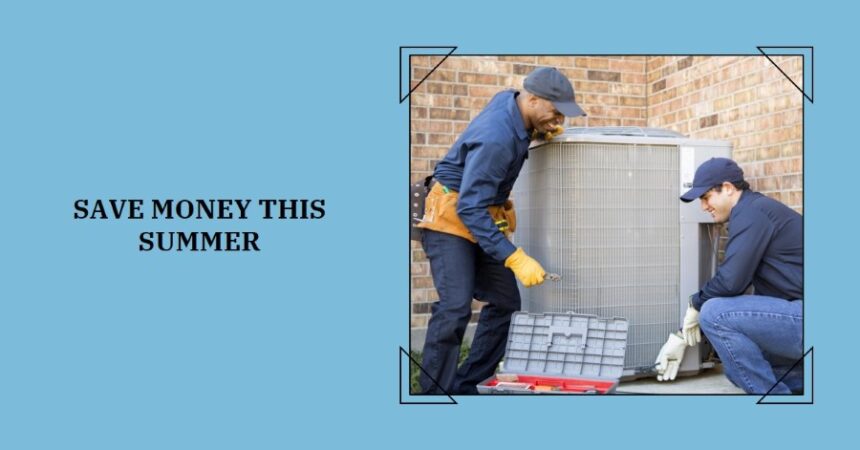Heating Ventilation and Air Conditioning (HVAC) systems have become an indispensable addition to our homes and buildings: keeping us comfortable while also improving air quality; however, costs associated with installation can quickly add up – I know first-hand. That is why I am here – to break down typical costs associated with HVAC installations so you can make informed decisions regarding their requirements.
Installation Costs: Be Prepared!
Installing an HVAC system can be quite expensive; costs range anywhere from $5,000 to $12500! But before you panic over these expenses, let me explain where they come from:
- Permits and Inspections: Depending on where you reside, certain permits and inspections might be necessary in order to make sure that your HVAC installation meets local codes – safety is always top of mind!
- Specialized Equipment: HVAC systems can be complex systems that often require the assistance of special tools for installation, and this additional cost could add significantly.
- Labor: To complete any task properly, skilled technicians are necessary; their services come at a price tag.
- Materials & Features: Your HVAC components’ quality, efficiency, and upgrade potential have an incredible influence over their final costs.
As much as it might be a lot to take in, here’s the good news: according to the U.S. Department of Energy, properly installed HVAC systems typically last 20-25 years with proper care and regular maintenance – making your initial investment worthwhile in the long run!
Repair Costs When Things Break
Even with proper maintenance, HVAC systems occasionally need repairs. On average, you should expect to spend around $350 for this cost; however, the actual amount can depend on which components need fixing as well as specific issues you face. Here are two typical repair scenarios:
- Reducing Evaporator and Condenser Coil Replacement Costs: Replacing these key components typically costs $400-1,500; replacing an air conditioning compressor could set you back even more!
- Minor Repairs: For smaller issues like installing a thermostat or doing electrical work (replacing batteries or fixing sockets), costs could be less than anticipated.
Estimating repair costs requires taking both materials and labor into consideration. HVAC technicians need to diagnose problems, remove broken parts, install replacement ones as required – each step adds to your final bill.
Replacement Costs: Know When it Is Time for Change
Sometimes renovating or repairing an older, badly damaged HVAC system simply doesn’t make financial sense, which necessitates its replacement instead. Replacement costs vary widely depending on which components need replacing as well as your plan for implementation of this changeover.
As an example, mini-split system installations typically begin around $2,000. Replacing an air conditioner typically ranges between $3,900 to $7,900 in installation fees alone; replacing furnace or heat pumps typically range between $1,700 and over $10,000 depending on fuel source availability.
I contacted several HVAC companies to get an idea of costs involved with installing or replacing air conditioning units in homes of various sizes, with Justin from Optimized Air in Round Lake estimating an approximate replacement cost at $4,500 but saying it could vary depending on size considerations.
Factors That Determine HVAC Costs
Cost considerations that impact HVAC installation, repair and replacement services include the following.
Home Size and Climate: Larger homes tend to need larger HVAC units, leading to higher costs. If you live in an extreme climate, more specialized solutions might also drive up costs; on the other hand, investing in energy efficiency might initially cost more upfront but will lead to significant cost-cutting benefits down the line.
Accessibility: When placing an HVAC system in an inaccessible spot, labor costs can skyrocket; additionally if opting for a premium brand you should expect higher fees as well.
Consider Your Local Market When Deciding About HVAC Solutions: As HVAC costs can differ depending on where you reside, it is crucial that when making decisions for an HVAC system or system replacement plan you consider how they could vary according to where it will be deployed.
Long-Term Benefits of Investing in HVAC System
Cost can often be an intimidating factor when purchasing HVAC systems; but it is vitally important to take the long-term benefits into consideration.
- Energy Cost Savings: Installing more efficient systems can result in considerable cost-cutting measures on monthly energy costs.
- Comfort: When working properly, HVAC systems can greatly enhance indoor comfort and air quality.
- Home Value: Updating your home with an efficient HVAC system can significantly raise its property value.
- Maintenance Costs: Proper HVAC maintenance will allow you to avoid unexpected repair expenses and extend its lifespan, thus saving money over time.
- Warranty Protection: Many HVAC systems include warranties to provide peace of mind and save on future repair expenses.
As a homeowner or property manager, understanding the costs associated with HVAC systems is critical. While initial investments might appear high at first, their long-term effects can prove worthwhile when factoring in factors like home size, climate conditions and energy efficiency needs; you’ll make more informed decisions regarding HVAC investments!
Remember, these average costs I’ve provided here are simply estimates; for an exact quote on HVAC needs in your situation I recommend getting multiple estimates from licensed professionals who can assess and provide insight on specific pricing. They’ll give a more precise indication of costs involved while helping find solutions tailored specifically to you and your budget.
Well, folks – here it is! My hope is that this breakdown of HVAC costs has been helpful to you. Stay cool (or warm, as is appropriate), and don’t hesitate to consult experts when necessary!
